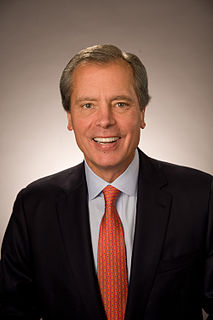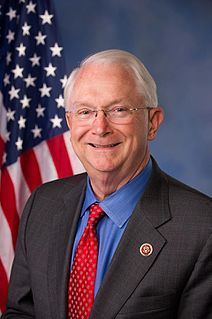A Quote by John Bolton
I've been subject to how many security clearance procedures and I must say as irritating as some people may find them I think they are absolutely essential to making sure that people who work in sensitive positions in the national security field in our government are entirely loyal to the United States.
Related Quotes
National security is a really big problem for journalists, because no journalist worth his salt wants to endanger the national security, but the law talks about anyone who endangers the security of the United States is going to go to jail. So, here you are, especially in the Pentagon. Some guy tells you something. He says that's a national security matter. Well, you're supposed to tremble and get scared and it never, almost never means the security of the national government. More likely to mean the security or the personal happiness of the guy who is telling you something.
The United States has every intention of continuing to do the kind of reconnaissance and surveillance work we have done for decades, well known to everyone, that is essential to protect our national security, and frankly, the security of our friends in various regions of the world. It is part of our collection system.
We have a media that goes along with the government by parroting phrases intended to provoke a certain emotional response - for example, "national security." Everyone says "national security" to the point that we now must use the term "national security." But it is not national security that they're concerned with; it is state security. And that's a key distinction.
Actually, the phrase "national security" is barely used until the 1930s. And there's a reason. By then, the United States was beginning to become global. Before that the United States had been mostly a regional power - Britain was the biggest global power. After the Second World War, national security is everywhere, because we basically owned the world, so our security is threatened everywhere. Not just on our borders, but everywhere - so you have to have a thousand military bases around the world for "defense."
I'm not interested in embarrassing the United States. We as a nation need to foster a broader understanding of national security, and when in the name of national security the US government both overtly and covertly aligns itself with the apartheid state and against heroic freedom fighters for racial justice ... Not only in 1962 but also keeping in mind that Mandela was on the US terror watch list until 2008, that kind of myopic understanding of national security has devastating consequences.
I am worried about this word, this notion - security. I see this word, hear this word, feel this word everywhere. Security check. Security watch. Security clearance. Why has all this focus on security made me feel so much more insecure? ... Why are we suddenly a nation and a people who strive for security above all else?
We all must be mindful that the United States has diplomatic, civilian, and military personnel deployed in other countries with both challenging security environments and active terrorist networks interested in targeting not just our facilities but our people. One of their greatest protections - knowing that the United States does not negotiate with terrorists - has been compromised.
The first objective of our national government is to provide for the common defense. And President Donald Trump has no higher priority than the safety and security of the American people. And the possession of nuclear weapons and ballistic missiles in the hands of a regime that routinely threatens the people of the United States of America and our allies is just simply unacceptable.











































